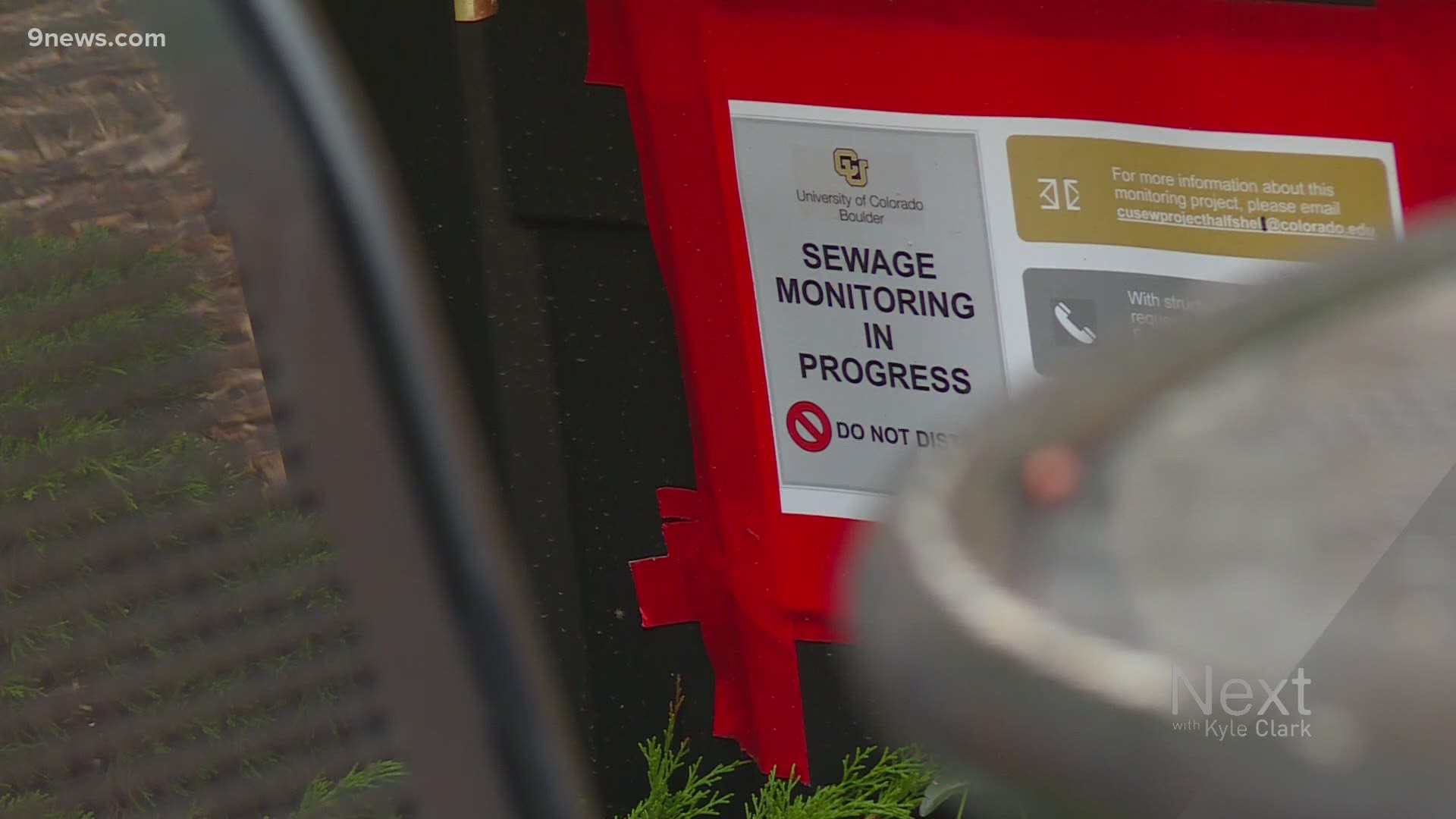BOULDER, Colo. — What if we told you the secret to keeping college campuses open and students safe could be sitting at the bottom of the toilet? Every time college students flush, they’re giving researchers more data to analyze.
"There is a lot of information that is just flushed down the drain," said Cresten Mansfeldt, an assistant professor of the Civil Environmental and Architectural Engineering Department in the Environmental Engineering program at the University of Colorado. "It’s a technique that allows us to really non-invasively listen in to potential community spreads of the virus."
Mansfeldt is in charge of trying to spot COVID-19 outbreaks on campus before anyone else even knows. Yup, maybe even before the person who is infected knows.
He and his team test wastewater on campus for any signs of the COVID-19 virus. From there they can narrow down where the virus is spreading, down to the specific dorm or building the sewer water came from. Testing is anonymous, so they can't tell the specific person the sample came from.
That can help spot outbreaks before people spread the virus to one another.
"The earlier that we can detect an infection, it allows more diagnostic, more testing, more direct application of resources to find that individual," Mansfeldt said. "What we do is we have passive collector systems across campus that slowly collects a very small volume over 24 hours."
It helps the university focus its limited testing supplies on certain parts of campus where researchers know the virus is spreading.
And it’s not just CU that’s doing this. Wastewater treatment plants across Colorado as well as other universities down the Front Range are also testing wastewater for COVID-19.
"There’s reports that about 40% to 80% of infections actually do shed through fecal matter," Mansfeldt said. "It allows us to get a very early indicator prior to somebody even knowing that they’re infected."
SUGGESTED VIDEO: Full Episodes of Next with Kyle Clark

